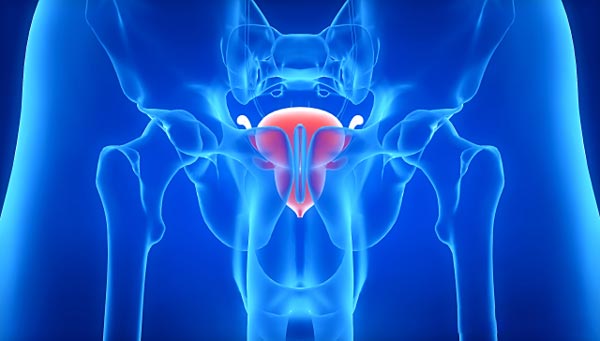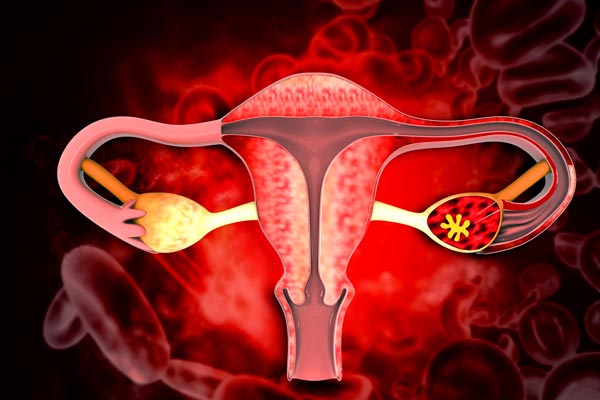First and foremost, it's important to understand that vaginal health relies on both "unobstructed blood circulation" and "local dryness and ventilation." Normally, daily activities promote pelvic blood circulation, providing adequate nutrition to the vaginal mucosa. Physical activity also promotes local air circulation, preventing moisture accumulation. However, prolonged sedentary behavior disrupts the healthy homeostasis of the vagina through two key factors: blood circulation and environmental humidity.

Research data shows that women who sit for more than eight hours a day (such as office workers and those who are bedridden) are 48% more likely to experience poor vaginal blood circulation and dysbiosis than women who spend more than two hours active daily. In gynecological clinics, approximately 35% of patients with candidal vaginitis and 26% of patients with chronic pelvic congestion have a sedentary lifestyle.
These data are not coincidental; they directly reflect the cumulative damage that lack of exercise causes to the vagina.
I. Three Core Mechanisms of Long-Term Sedentary Damage to the Vagina
A) Impeding Pelvic Circulation and Weakening the Mucosal Repair Ability. The biggest problem with prolonged sedentary behavior is the combination of "stagnation of blood circulation and insufficient nutrition."
- Prolonged sitting creates constant pressure on the pelvic area, obstructing pelvic venous blood flow. This leads to blood pooling within the pelvis, causing pelvic congestion. This congestion prevents the capillaries of the vaginal mucosa from properly transporting oxygen and nutrients, slowing the metabolism of mucosal cells and significantly reducing their ability to repair damaged cells.
- Poor circulation prevents immune cells (such as white blood cells) in the vaginal mucosa from reaching the affected area in a timely manner. When harmful bacteria invade, these immune cells are unable to quickly take action, making it difficult to fight off infection. This combination of "undernutrition and weakened immunity" makes the vaginal mucosa fragile and vulnerable. Even minor irritation can cause damage, which is difficult to heal. This creates a "breakthrough" for bacteria and fungi to invade, leading to various types of vaginal inflammation.
B) Creating a humid environment accelerates the growth of harmful bacteria. Prolonged sitting can obstruct local air circulation, creating a "closed and humid" environment.
- The close contact between the buttocks and the seat during prolonged sitting can raise the temperature of the perineum by 2-3°C. This, coupled with the inability of the body's sweat to evaporate quickly, leads to a significant increase in local humidity. A warm and humid environment is the perfect breeding ground for fungi (such as Candida albicans), which can multiply 15-20 times faster than under normal conditions.
- Prolonged sitting can cause localized accumulation of vaginal secretions, preventing them from being expelled promptly. The nutrients in these secretions provide "nutrients" for harmful bacteria, further accelerating their growth. When the number of fungi or harmful bacteria exceeds normal limits, can cause candidal vaginitis or bacterial vaginosis. Patients often experience symptoms such as dreg-of-the-bone discharge, severe itching, and vaginal odor. Due to the persistent sedentary environment, inflammation is prone to recurrence.
C) Pressure on vaginal tissue, disrupting bacterial balance. The continuous pressure from prolonged sitting can indirectly disrupt the balance of vaginal flora.
- When sitting for extended periods, the vagina is squeezed by the chair, increasing pressure within the vaginal environment. This disrupts the previously stable bacterial distribution, compressing the living space of the dominant bacteria (Lactobacillus), and gradually reducing their numbers.
- This compression can cause minor damage to the vaginal mucosal cells, creating gaps in the natural protective barrier on the mucosal surface. Harmful bacteria can more easily attach to the mucosal surface and invade the cells, further squeezing the living space of Lactobacillus, resulting in an imbalanced bacterial flora dominated by "harmful bacteria."
An imbalanced bacterial flora disrupts the vagina's acidic environment, raising the pH and weakening its defenses. This not only increases the risk of inflammation but also can weaken the vagina's resistance to pathogens, creating a vicious cycle of "imbalanced flora - inflammation - further imbalance." In severe cases, this can lead to chronic pelvic inflammatory disease.

II. How can we scientifically mitigate the damage to the vagina caused by prolonged sitting?
Please keep these three practical suggestions. Once you're aware of the dangers of prolonged sitting, adjusting your lifestyle habits can effectively protect vaginal health.
Specific recommendations include:
- Get up and move around regularly to promote pelvic circulation. Develop a habit of regular movement. If your work requires prolonged sitting, it's recommended to get up and move around for 5-10 minutes every 30-40 minutes. Simple stretches, walking, or squats can promote pelvic blood flow and relieve congestion. Visit the bathroom more often during breaks to exercise, and avoid holding urine for extended periods (holding urine can increase pelvic pressure). On weekends or during your free time, engage in moderate exercise (such as yoga, brisk walking, or swimming) 3-4 times a week for at least 30 minutes each time. This can improve pelvic circulation and boost immunity.
- Optimize your sitting posture and equipment. Improving your local environment. Adjusting your sitting posture and choosing appropriate equipment can effectively reduce the damage to your vagina caused by prolonged sitting. First, avoid sitting cross-legged or with your legs crossed, or other postures that compress the pelvis. Opt for a "legs naturally apart" sitting position to provide ample space around the perineum and promote air circulation. Second, choose a breathable, soft seat or place a breathable cotton cushion on the seat to reduce the tightness between the buttocks and the seat, allowing sweat to evaporate and lowering local temperature and humidity. Wear loose, breathable clothing (such as cotton trousers or breathable skirts) and avoid tight pants or synthetic pants to further improve local ventilation.
- Strengthen daily care to maintain a stable bacterial flora. Scientific daily care can help maintain vaginal health. First, wash your vulva daily with warm water to keep it clean and dry, avoiding the use of harsh washes. Choose 100% cotton underwear and change it daily. Wash it separately and expose it to the sun for disinfection to reduce bacterial growth. Second, choose breathable sanitary napkins during your period and change them every 2-3 hours to prevent the accumulation of menstrual blood and possible infection from prolonged sitting. Finally, maintain a balanced diet and include foods rich in dietary fiber and probiotics (such as yogurt, celery, and oatmeal) to help maintain a balanced intestinal and vaginal flora and enhance your body's immunity.

III. Be vigilant! These symptoms may indicate vaginal problems caused by prolonged sitting.
If you experience the following symptoms after prolonged sitting, it's recommended to seek medical attention promptly to avoid delaying treatment:
- Frequent episodes of vaginal itching, especially after prolonged sitting or at night, and worsened by scratching;
- Abnormal vaginal discharge: Discoloration changes from white to dregs or yellow-green to frothy, with a distinct odor or fishy smell;
- Lower abdominal distension and lumbar pain, worsened by prolonged sitting and slightly relieved by activity;
- Pain or discomfort during intercourse, or irregular vaginal bleeding or burning sensation.
Vaginal health is closely linked to daily activities. The harm caused by prolonged sitting is often overlooked because it's so insidious. It doesn't immediately lead to serious illness, but it can gradually erode the vagina's health foundation, laying the groundwork for inflammation and infection.
Thus, starting now, break up your sedentary habits, get up and move around regularly, and maintain regular daily care. These simple actions are all investments in vaginal health.
Remember, taking care of your vaginal health will lead to a more comfortable and healthy life.

%20--%3e%3c!DOCTYPE%20svg%20PUBLIC%20'-//W3C//DTD%20SVG%201.1//EN'%20'http://www.w3.org/Graphics/SVG/1.1/DTD/svg11.dtd'%3e%3csvg%20version='1.1'%20id='图层_1'%20xmlns='http://www.w3.org/2000/svg'%20xmlns:xlink='http://www.w3.org/1999/xlink'%20x='0px'%20y='0px'%20width='256px'%20height='256px'%20viewBox='0%200%20256%20256'%20enable-background='new%200%200%20256%20256'%20xml:space='preserve'%3e%3cpath%20fill='%23FFFFFF'%20d='M194.597,24.009h35.292l-77.094,88.082l90.697,119.881h-71.021l-55.607-72.668L53.229,232.01H17.92%20l82.469-94.227L13.349,24.009h72.813l50.286,66.45l58.148-66.469V24.009z%20M182.217,210.889h19.566L75.538,44.014H54.583%20L182.217,210.889z'/%3e%3c/svg%3e)




